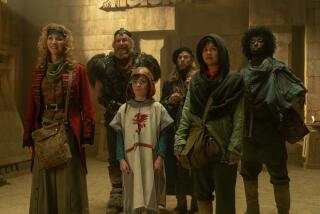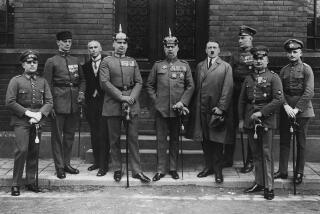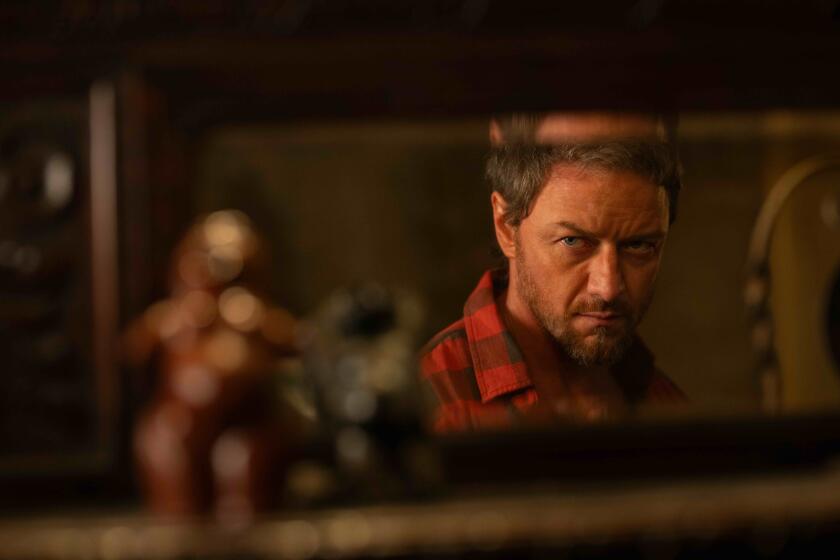Taika Waititi didn’t want ‘Jojo Rabbit’ to be a sad Holocaust film. So he added Adolf Hitler
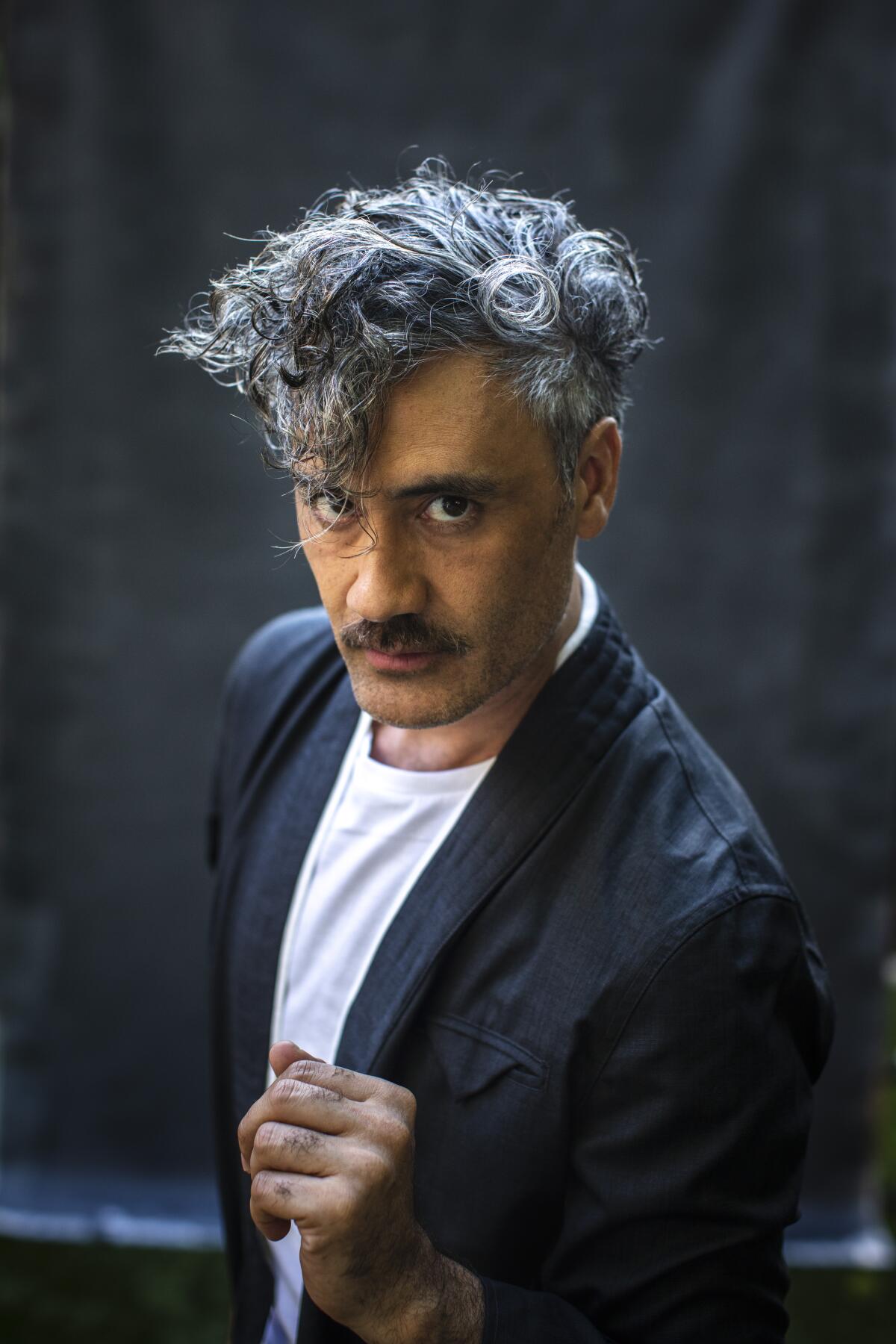
Several years ago, New Zealand filmmaker Taika Waititi (“Thor: Ragnarok”) was writing an adaptation of “Caging Skies,” an obsessive love story between a Hitler Youth boy and the Jewish girl his family is hiding. Waititi’s mother had tipped him off about the novel but, upon reading it, he found that the book’s serious tone differed significantly from the weird, twisted and fun way his mom had described it.
For Waititi, that posed a problem. He didn’t want to make a Holocaust drama like “The Boy in the Striped Pyjamas” because, he says, he can’t handle making a movie that isn’t, to some degree, fun. “I can’t go to work thinking, ‘Day 22 of this super-depressing film,’” he says. “That’s just not my style.”
What the movie needed, Waititi decided, was absurdist humor. He wanted to make his audience laugh and not have to sit through a story that would be “sad from beginning to end and boring and dull.”
So he added Adolf Hitler.
Waititi’s decision to use one of history’s most infamous figures as a comic foil puts his movie, “Jojo Rabbit,” in a delicate place at a time when neo-Nazi groups are making daily headlines and the president of the United States has accused American Jews who vote for Democrats of “great disloyalty.” Fox Searchlight will release the film Oct. 18, following a world premiere at the Toronto International Film Festival on Sept. 8.
However, Waititi, who wrote and directed “Jojo” and stars as Hitler, believes the timing is perfect.
“To me, this movie feels like a cautionary tale,” the 44-year-old filmmaker says during a recent morning conversation in Los Feliz, where he’s taken up temporary residence. “It’s not about something that happened all these years ago. It’s right on our doorstep now and we’re minutes away from this same [garbage] happening all over again.”
The film unfolds through the eyes of 10-year-old Jojo (Roman Griffin Davis), a dedicated Hitler Youth member who confides in an imaginary, friendly Führer during trying times. Jojo’s fanaticism disturbs his mother (Scarlett Johansson), and their relationship is further complicated when Jojo discovers that she’s been sheltering a Jewish girl, Elsa (Thomasin McKenzie), in their attic. Soon Jojo must reconcile his devotion to Hitler with his growing friendship with Elsa.

In “Jojo Rabbit,” director Taika Waititi brings to life a World War II satire that follows a lonely German boy whose world view is turned upside down when he discovers his single mother is hiding a young Jewish girl in their attic.
Sam Rockwell, Rebel Wilson, Alfie Allen and Stephen Merchant are among the actors playing Nazis in the film, to varying levels of comedic effect.
Waititi portrays Hitler as a benign buffoon, modernizing much of his character’s casual dialogue. His Hitler uses phrases you’d expect to hear from Fonzie on “Happy Days” (“correctamundo!”) and asks Jojo after an awkward moment, “Did I make it weird? It’s weird now between us.”
“Well, I was trying to make him the Fonz of 1945,” Waititi says. In the same vein, he points to the movie’s opening credits sequence, which juxtaposes Jojo running off to summer camp to the sound of The Beatles singing “I Want to Hold Your Hand” in German with footage of early Nazi rallies. “I looked at those documentaries and it just came to me: Hitler was the Beatles of the time in Germany. It was like Beatlemania, the way people responded.”
The Hitler in “Jojo Rabbit” is also conjured from the mind of an adoring young boy, meaning he’s just as innocent as Jojo. He knows nothing about the war or its atrocities.
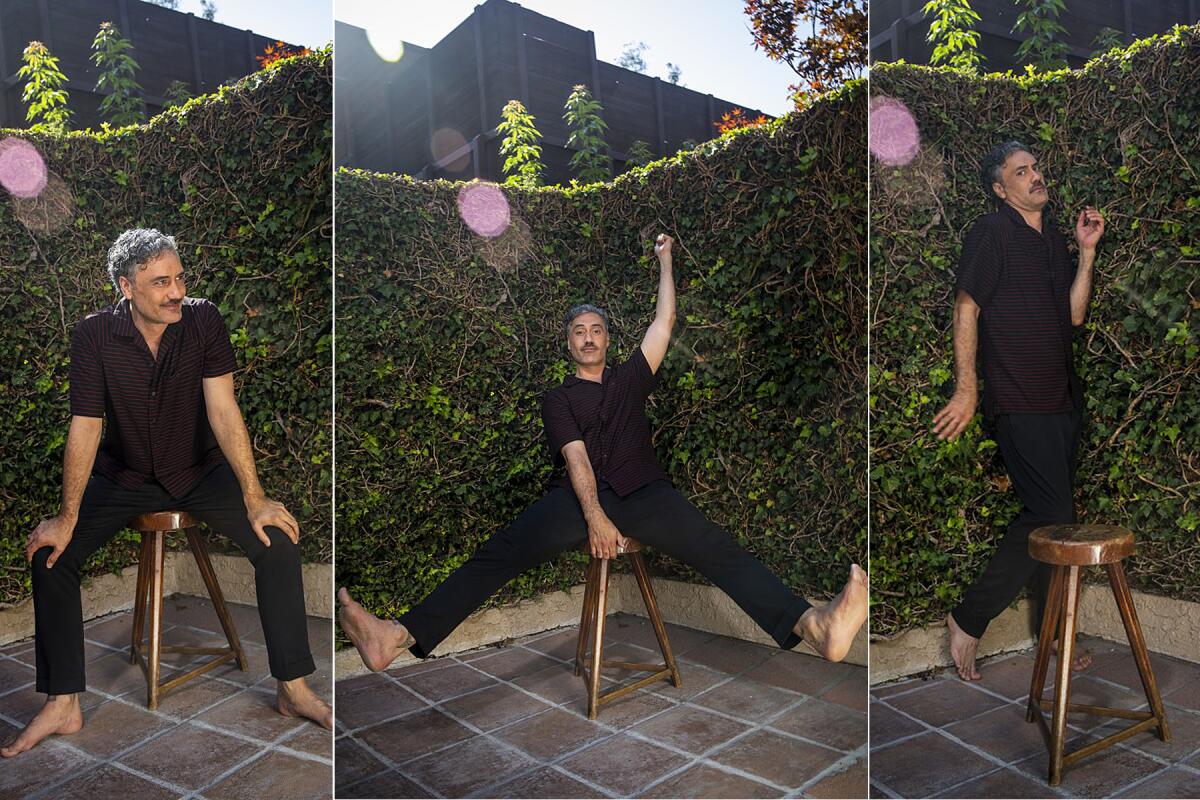
“It never felt like a danger because Hitler is just an access point into this kid who’s brainwashed,” Waititi says. “I guarantee you there were kids who fell asleep talking to an imaginary Hitler in the 1930s and ’40s.”
Waititi remembers he had his own imaginary friends during his childhood, father figures and cultural icons he’d consult when his own dad was absent. (“Which was often,” he says.) Waititi’s movies, among them “Hunt for the Wilderpeople” and “Boy,” are often told from a child’s point of view, offering charming, offbeat tales of misfits longing for friendship and family.
“He has the ability to put his own spin on familiar stories,” says producer Carthew Neal, who runs a production company with Waititi and has known him for years. “I always have total faith in him being able to walk the line between absurdist humor and heart.”
It can be difficult to get a fix on the impish Waititi. He repeatedly stresses his New Zealand roots as a way of waving off the idea of intentional provocation. (“We’re too nervous and too polite to do that,” he says. “As a people we don’t like confrontation.”)
On the other hand, he bandies words like “chaos” and “disruption” and jokingly ponders whether he would have been forced to live in a bunker if he had gone Method playing Hitler.
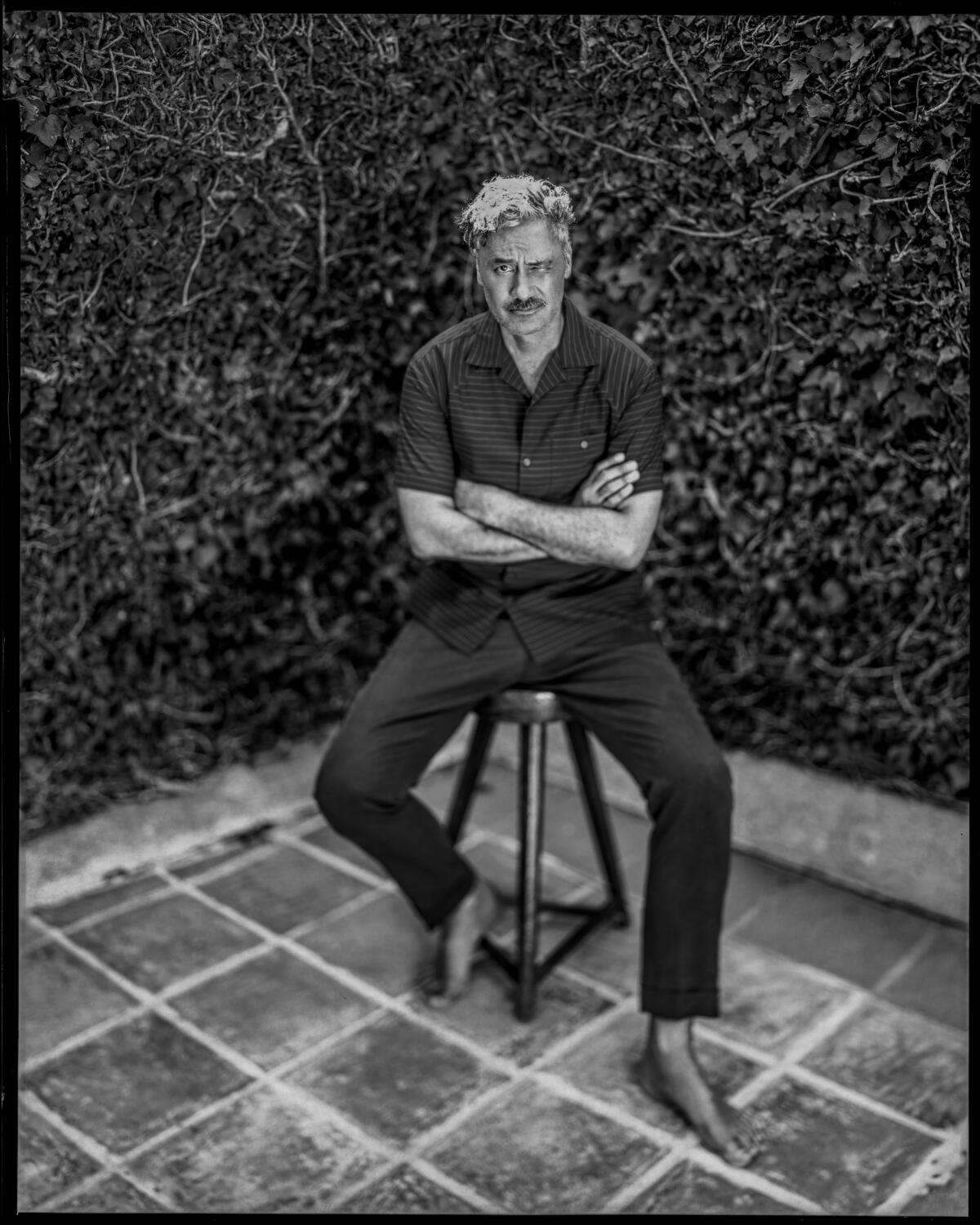
My mother comes and visits the set, this little Jewish woman from New Zealand, and I’m dressed like Hitler...
— Taika Waititi
Waititi long toyed with directing a stop-motion animated movie called “Bubbles,” which looked at Michael Jackson from the perspective of his pet chimpanzee. It would have been another story about a crazy world told through the eyes of an innocent. He left the project earlier this year in the wake of the controversial HBO documentary “Leaving Neverland.”
Instead, he’s preparing a return to the Marvel Cinematic Universe with “Thor: Love and Thunder,” which will have Natalie Portman and Chris Hemsworth each playing versions of the title character. It’s already scheduled to open Nov. 5, 2021. “We’re going to really change things up and disrupt” — there’s that word — “the ways these superhero stories are told,” Waititi says.
Waititi feels equally comfortable on both sides of the camera, having acted in all of his movies. Dressing up as Hitler, though, filled him with shame, adding another level of anxiety to a shoot fraught with anxiety as Waititi struggled to hone the movie’s tone.
“And then my mother comes and visits the set, this little Jewish woman from New Zealand, and I’m dressed like Hitler,” Waititi remembers. “And the first time she sees me, she says, ‘Oh darling, you look great.’” Waititi grins. “If you’re wondering where my humor comes from, there’s your answer.”
Character studies like “Joker,” sequels like “It Chapter Two” and “Terminator: Dark Fate” and the return of “Downton Abbey” are just a few of the films slated to be released this fall that we explore in our Fall Movie Sneaks.
More to Read
Only good movies
Get the Indie Focus newsletter, Mark Olsen's weekly guide to the world of cinema.
You may occasionally receive promotional content from the Los Angeles Times.
